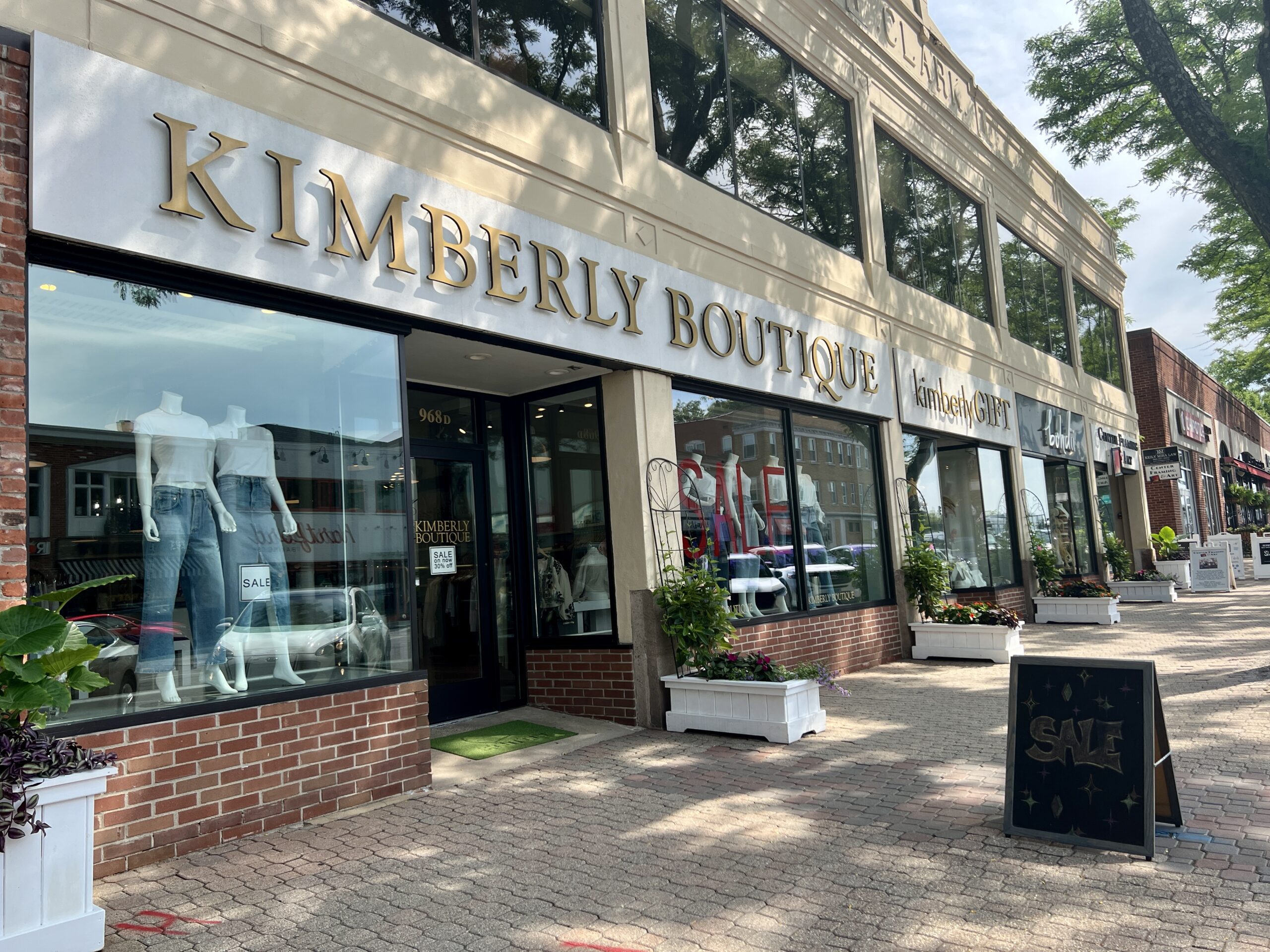West Hartford Students Grow Seedlings, Share in Local Harvest

Audio By Carbonatix
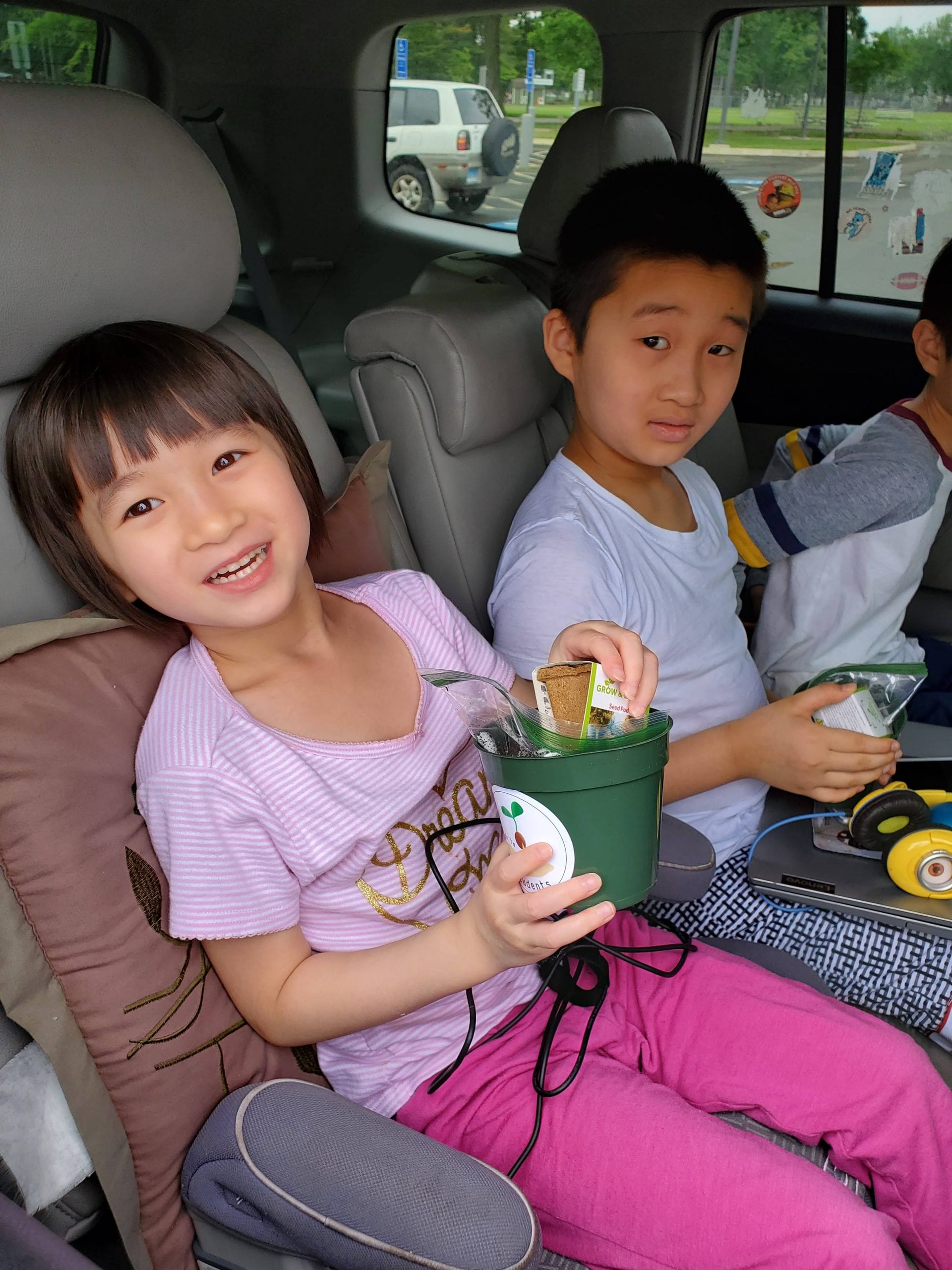
Smiles abound when students who go to the Multi-Purpose Grab and Go School sites get to bring home a seedling growing kit and learn how to grow their own vegetables. Photo courtesy of Roszena Haskins
A two-part project aims to help eliminate food insecurity in West Hartford, with help from teachers and now from gardeners who are sharing their own harvest.
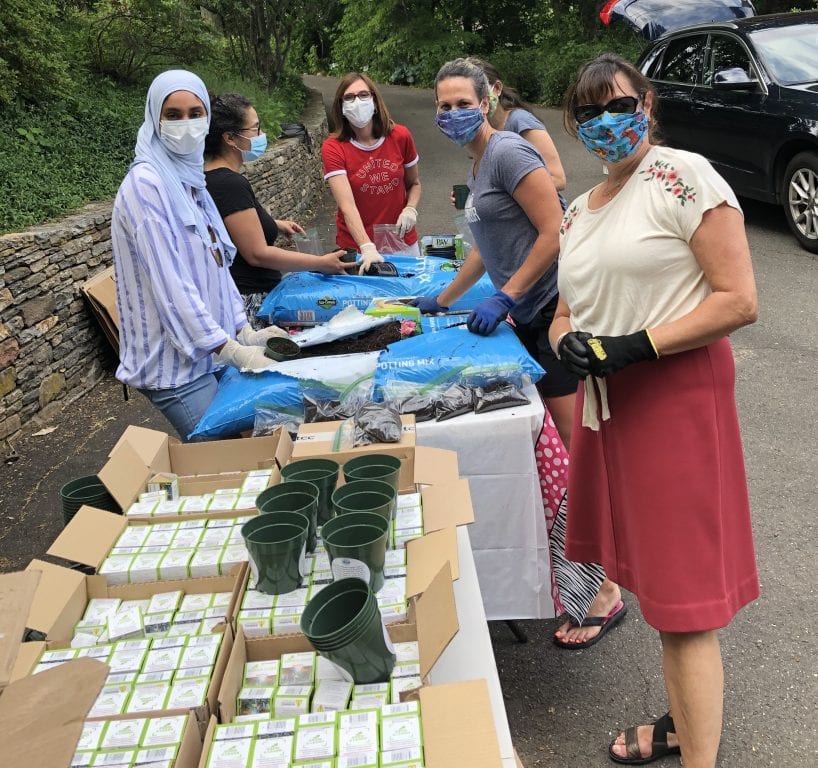
Once the word spread about setting up pots with seeds and dirt for students to take home and grow their own food in, volunteers—mostly teachers in the town’s school system—came forward, armed with masks and gloves, to label the pots and help fill them with dirt, seeds, and instructions. Photo courtesy of Roszena Haskins
By Tracey Weiss
What happens when you add gardening, education, and two motivated members of the town’s school system together? You get a formula that helps to reduce food insecurity and provides an organic educational element.
The resulting two-part plan is Seedlings to Students and Harvest to Homes, and it’s already growing, literally.
Several weeks ago, more than 800 pots complete with seeds and dirt were given out at several of the Multi-Purpose Grab and Go sites in West Hartford, where students not only pick up meals, but have also served as a way to distribute technology, art supplies, books, learning packets, and educational games.
That was the Seedlings to Students phase.
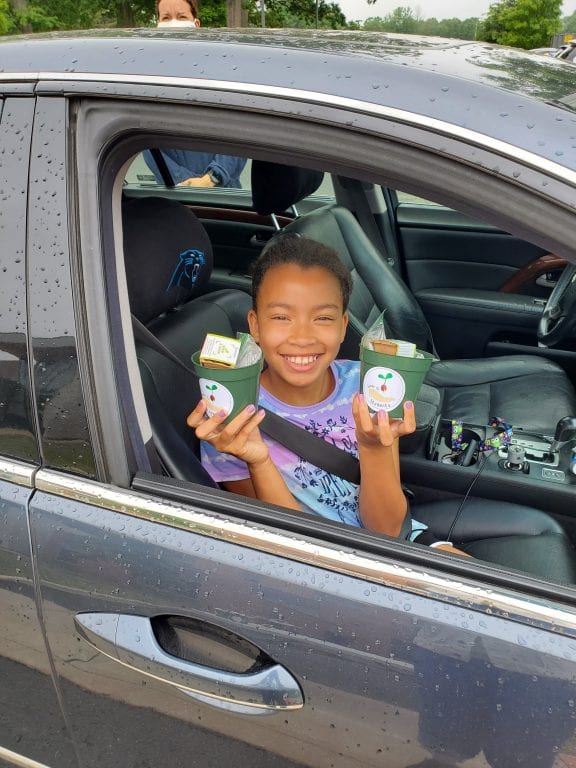
A student shows off her seedling pots at a grab and go pick-up. Photo courtesy of Roszena Haskins
And now, home gardeners with excess vegetables in their garden can help with Harvest to Homes by donating food to those same students.
Lisa Daly, who is the department supervisor of Physical Education & Health for West Hartford Public Schools, was deeply influenced by keynote speaker Stephen Ritz at a conference she attended a few years ago in Nashville, TN.
“He was from the Bronx, a school science teacher,” Daly said. “He was talking about how horrible the attendance was at the school, and how most of the kids [attending] grew up in poverty. So, he took over vacant lots in the community, grew vegetables and then [he and the students] packaged, produced, marketed and sold those products.
“He talked about the evolution of the school philosophy and how it was embraced. And how graduation went up to 100%. Test scores skyrocketed.
“All of that hit me in the heart. I came back and talked about doing something like that but there were no takers. I thought, ‘I can do this myself,’” Daly said.
This spring, with everyone sheltering at home, “A colleague was organizing a lunch so we could come to have a meal and connect with each other,” Daly said. “I mentioned my ideas to people and to the West Hartford Garden Club to see if anyone had any ideas. Within a week, I got an email from someone in special education and she said that Stop and Shop was handing out free seeds and growing kits. She grabbed 80 boxes – 800 seed pods of varying vegetables – then we called Moscarillo’s [Garden & Floral Shoppe] and they practically gave us 800 pots. They barely charged me.”
She ordered 1,600 labels, a logo was developed, and they held a “potting” party wearing masks and gloves.
“Teachers from all over lined up in my driveway,” said Jocelyn Tamborello-Noble, who hosted the party.
Daly calls Tamborello-Noble, a world language supervisor for West Hartford Public Schools, her “partner in crime” since the start. “She jumped right on board from the beginning,” Daly said. “She helped spread the word and get volunteers and she attends some of the grab and goes with me.”
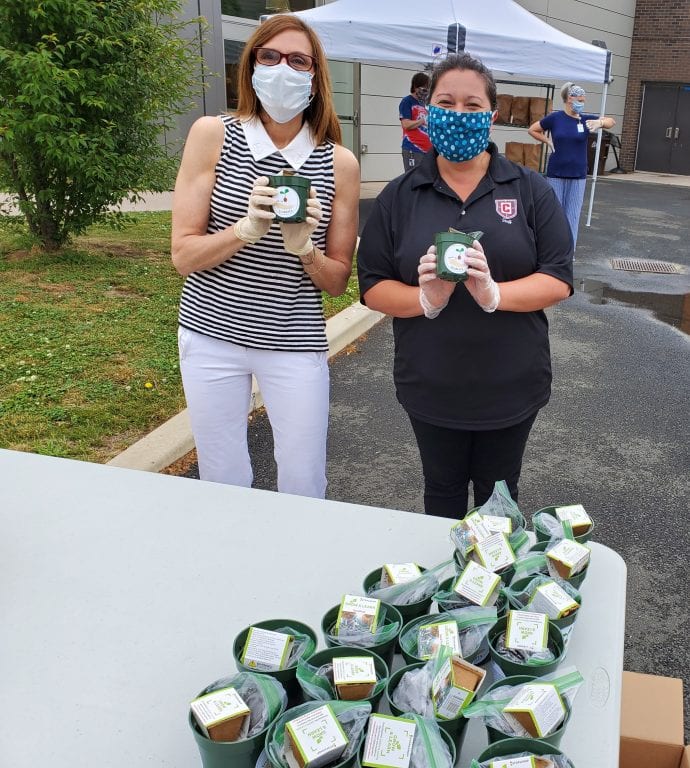
Lisa Daly (left) and Jocelyn Tamborello-Noble were “partners in crime” who set up the Seedlings to Students and Harvest to Homes program. Both arms of this project aim to reduce food insecurity and inspire students to grow their own food. Courtesy photo
Other volunteers included Karen Kosovsky, Paula Dombek, Aiyah Moustafa, Analiz Diaz, Carmen Irizarry, Dana Martin (who designed the seeds logo), Joyce Bogdan, and Lynn Racz. Margaret Pulito and Madeliene Hexter of the West Hartford Garden Club also helped with Seedlings for Students.
“I love this town so much,” Tamborello-Noble said. “I grew up in West Hartford and now I have the privilege to serve the community that served me so well. I love being able to provide for other families. We’ve gotten so much support from people like [School Superintendent] Tom Moore, and so many teachers. We’re so grateful for the support.”
They’re also grateful to Roszena Haskins, director of Equity Advancement, who provided a lot of support along the way.
“We’re thrilled with the Seedlings to Students project,” Haskins said. “It builds community and brings an educational component to the program by fostering engagement around making healthy choices. There is also a social and emotional factor in the fact that they’re nurturing something and taking responsibility for caring for something.”
The next arm of this project is asking community members for help.
“The seed kits are great to teach students how to grow their own and get them thinking about self-sustainable living but they won’t be enough for a family,” Daly said. “We are asking home gardeners to contribute a portion of their personal harvest to share with neighbors/our students. Neighbors helping neighbors. All it requires is after harvesting, to drop some off so that our students and their families can share in access to fresh fruit and vegetables.”
And the best part? Growing hydroponic vegetables will now be a part of the school system’s curriculum.
“The State of Connecticut changed its requirements for graduation starting in 2023,” Daly said. “There are new health credit offerings. I wrote curriculum for students to grow hydroponic gardens in the classroom. Food grown in the classrooms will be donated to food pantries.”
As early as this fall, middle school students will be growing hydroponic gardens in their classrooms as part of a health class rotation. By 2022, high school students will get to take those classes as an elective.
“Students will have to pick two health electives between their junior and senior year,” Daly said. “This will be one of the health elective options.”
Daly said she is excited about what’s been taking place this spring and summer and the educational component of growing food in the classrooms.
Students will have a “deeper connection and understanding of gardening and growing food,” she added. “And they’ll have the practical experience. I’m excited about that.”
If you would like to donate fresh vegetables, contact Lisa Daly at [email protected] or Jocelyn Tamborello-Noble at [email protected].
A version of this story originally appeared in the August issue of West Hartford LIFE.
Like what you see here? Click here to subscribe to We-Ha’s newsletter so you’ll always be in the know about what’s happening in West Hartford! Click the blue button below to become a supporter of We-Ha.com and our efforts to continue producing quality journalism.
